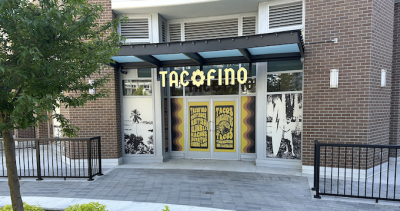Susan Boyd's Busted recounts Canada's history with prohibition at a time it's needed most
Canada’s war on drugs began in Vancouver’s Downtown Eastside, and one day, possibly in the not too distant future, the Downtown Eastside is where it will end.
University of Victoria professor Susan Boyd recounts that story in her new book, Busted: An Illustrated History of Drug Prohibition in Canada, which has its launch at SFU’s Goldcorp Centre for the Arts tonight (January 23).
“Our first narcotics laws, the first Opium Act, was enacted because of events that happened right here in Vancouver,” she explained in a telephone interview.
On September 7, 1907, a parade of thousands marched on City Hall, which then was located at the corner of Main Street and East Hastings. “Stand for White Canada” read a banner the group carried at its front. The mob ransacked Chinatown and Vancouver’s Japanese quarter.
Canada’s deputy minister of labour, William Lyon Mackenzie King, was dispatched to investigate claims for compensation. “Shortly afterwards,” Boyd writes in the book, “King met with a deputation of three men from the Chinese Anti-Opium League. A few days later, while speaking to the Vancouver Daily Province on June 3, 1908, King declared: ‘it should be made impossible to manufacture this drug in any part of the Dominion…We will get some good out of this riot yet.’”
The Opium Act of 1908 was the result, a piece of “race-based legislation,” Boyd continues, that was subsequently used to target Chinese people across the country.
Canada’s war on drugs was under way. And, in Vancouver especially, so was a movement against it.
“We have a long legacy of resistance,” Boyd told the Straight.
The book includes a rich collection of photographs and artwork that Boyd spent years curating. The images appear alongside fascinating and often lesser-known chapters of Canadian history: experiments with psychedelic drugs in Saskatchewan, for example, and parades in favour of alcohol prohibition that marched through the streets of Toronto.
Throughout there runs a theme of missed opportunities, of recurring moments in history when Canada almost took a road away from prohibition. If it had, Boyd argues, the country might have a very different relationship with drugs, and possibly could have avoided the overdose epidemic it struggles with today.
“In the 1970s, it looked like cannabis was going to be legalized,” Boyd said. “Our minister of health and welfare announced that cannabis would be legal by the end of the year. But it didn’t happen. And so, what were the forces that came into play and stopped it from happening?...I wanted to look at that more closely.”
Going back further, Boyd highlights the work of Ernest Winch, a B.C. politician who spent much of the 1940s and '50s lobbying Ottawa to stop treating people addicted to drugs as criminals.
“He asked the question: why are we putting people in prison when we could be providing them public treatment and substitution programs?” Boyd recalled. “When reading the history, I can’t help but think, ‘We wouldn’t be in this place today if, back in the 1950s, or even the 1920s, we saw people who use criminalized drugs as full citizens with human rights.’”
Toward the end of Busted, Boyd returns to Vancouver, where she recounts how activist groups like the Vancouver Area Network of Drug Users and the Portland Hotel Society have led a movement against Canada’s war on drugs. She explains how they’ve focused on harm reduction to challenge prohibitionist policies that often hurt people addicted to drugs more than the drugs themselves.
While the book only mentions Canada’s ongoing overdose epidemic in its closing pages, Boyd said the opioid crisis is very much the context within which she intends Busted to be discussed.
“If people were more acquainted with our history of prohibition, then they might more critically reflect on the routes that we should take right now, in the midst of a drug-overdose crisis,” she said.
A launch event for Busted is scheduled for Tuesday (January 23) at 7 p.m. at SFU's Goldcorp Centre for the Arts (149 West Hastings Street). Author Susan Boyd will be joined by the Canadian Drug Policy Coalition's Donald MacPherson for a discussion of what Canada’s history of drug prohibition says about its future.
More














Comments